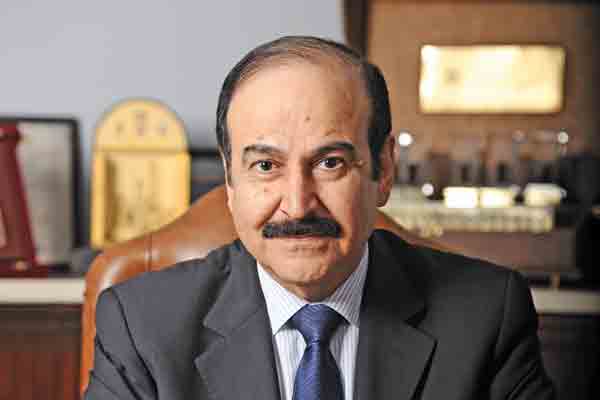
Dr Mirza ... pipelines play a key role.
A-B pipeline construction contracts before year-end
MANAMA, April 12, 2016
Construction contracts for the Bahraini stretch of the 115-km new multi-million-dollar A-B pipeline between Saudi Arabia and Bahrain will be awarded before the end of the year, said Bahrain’s Energy Minister Dr Abdul-Hussain bin Ali Mirza.
The construction contracts for the 43-km Saudi onshore stretch have been awarded.Contracts have also been awarded for the offshore 41-km stretch of the pipeline, which will be completed in the second quarter of the 2018, Dr Mirza told OGN.
Earlier, inaugurating the third Pipeline Operations & Management Middle East Conference & Exhibition in Bahrain, the minister said Bahrain was in the process of replacing, and rerouting the 55 km A-B pipeline, between Saudi Arabia and Bahrain. The current A-B pipeline, was built in 1945 and was considered in its days as the longest pipeline in the region.
Since that time, urban encroachment is happening continuously on the pipeline, which has a capacity of 230,000 barrels per day (bpd).
The new A-B pipeline is 115 km long, and the operating capacity has increased from 230,000 barrels per day (bpd) to 350,000 bpd, with 400,000 bpd design capacity, he says.
It starts from Aramco Abqaiq Plant in Saudi Arabia and runs to the Bapco refinery. The new pipeline extends over Saudi Arabia's 43 km onshore, 41 km offshore under the sea between Saudi and Bahrain and 31 km onshore Bahrain. The expected mechanical completion is Q2-2018.
Dr Mirza says pipelines play a key role in the oil and gas industry as they are the most economical and safest method for transporting fuel. Without efficiently maintained oil pipelines, petroleum products will not smoothly reach the multitude of customers worldwide, he says.
Pipelines, provide the most efficient means of transportation over long distances for moving large quantities of crude oil, petroleum products, liquefied natural gas, aviation fuel, chemicals or feedstock.
Since pipelines deal with the movement of hydrocarbons, from fields to markets integrity is important. Timely inspection of pipeline assets by experts is a must in order to identify efficiency and safety issues. The region, being a major oil and gas hub, will have to be alert to new ways to improve pipeline integrity.
Billions of dollars are invested by oil and gas producers to address health, safety and security, and environment concerns, while planning and assembling pipeline networks.
“As offshore exploration moves into deeper and more hostile waters, we need to have stronger pipelines. Oil and gas industries operate, in harsh deserts and deep seas, where equipment in deep sea environments, are constantly exposed to a wide range of environmental conditions, leaving them vulnerable,” he says.
It makes more sense to invest in preventive actions, than counting the losses due to inaction. This is true in the pipeline industry as well. Several decades of oil and gas exploration, has caused many pipeline networks to exceed their original design lives. In the oil industry, pipeline damage can ultimately result in oil and gas leakage, which will affect uninterrupted flow of oil and gas.
Also, since the GCC economies are highly dependent on oil and gas industries, it is a good idea to look into costs incurred, due to degradation of the pipeline infrastructure, for the transportation and storage of natural gas, crude oil, and refined petroleum products. Pipeline leaks can contaminate the nearby water sources, and air and pose fire hazards.
There are many challenges to overcome, while securing pipeline networks, and the best way to do so is to act collaboratively.
Safe and reliable transportation of oil and gas remain essential, for sustaining regional economic health and growth.
Risks increase with ageing transportation networks, which affect the efficiency, if not well maintained on time.
Even as concerns over pipeline safety looms, modern technology is increasingly improving the ease of monitoring process, Dr Mirza adds.
The minister went on to give examples of mega-pipelines in the world:
On May 24th 2012, India and Pakistan signed an agreement for the ambitious 1,700 km transcontinental gas pipeline project, which would see Turkmen gas being delivered to Pakistan and India via Afghanistan in 2018.
However, the completion date of this pipeline is still not known, because it faces many hurdles. The 1,700-km pipeline, once constructed, will transport some 90 billion cu m of gas per year, for 30 years, from Turkmenistan's giant Galkynysh field, to energy-hungry consumers in Pakistan and India, as well as relieving shortages in Afghanistan.
The 2,228-km Kazakhstan-China oil pipeline, is China's first direct oil import pipeline, allowing oil import from Central Asia. It runs from Kazakhstan's Caspian shore, to Xinjiang in China. The pipeline capacity, is around 14 million to 20 million tonnes per year.
The 4,857-km Eastern Siberia-Pacific Ocean oil pipeline (ESPO) is for exporting Russian crude oil to the Asia-Pacific markets, like Japan, China and Korea.
The pipeline is built and operated by Russian pipeline company Transneft. The project was completed in 2014.
The initial capacity of the 122-cm (48 inches) diameter pipeline is, 600,000 bpd. By 2016, the capacity of the pipeline will be increased up to 1 million bpd and by 2025 up to 1.6 million bpd.







